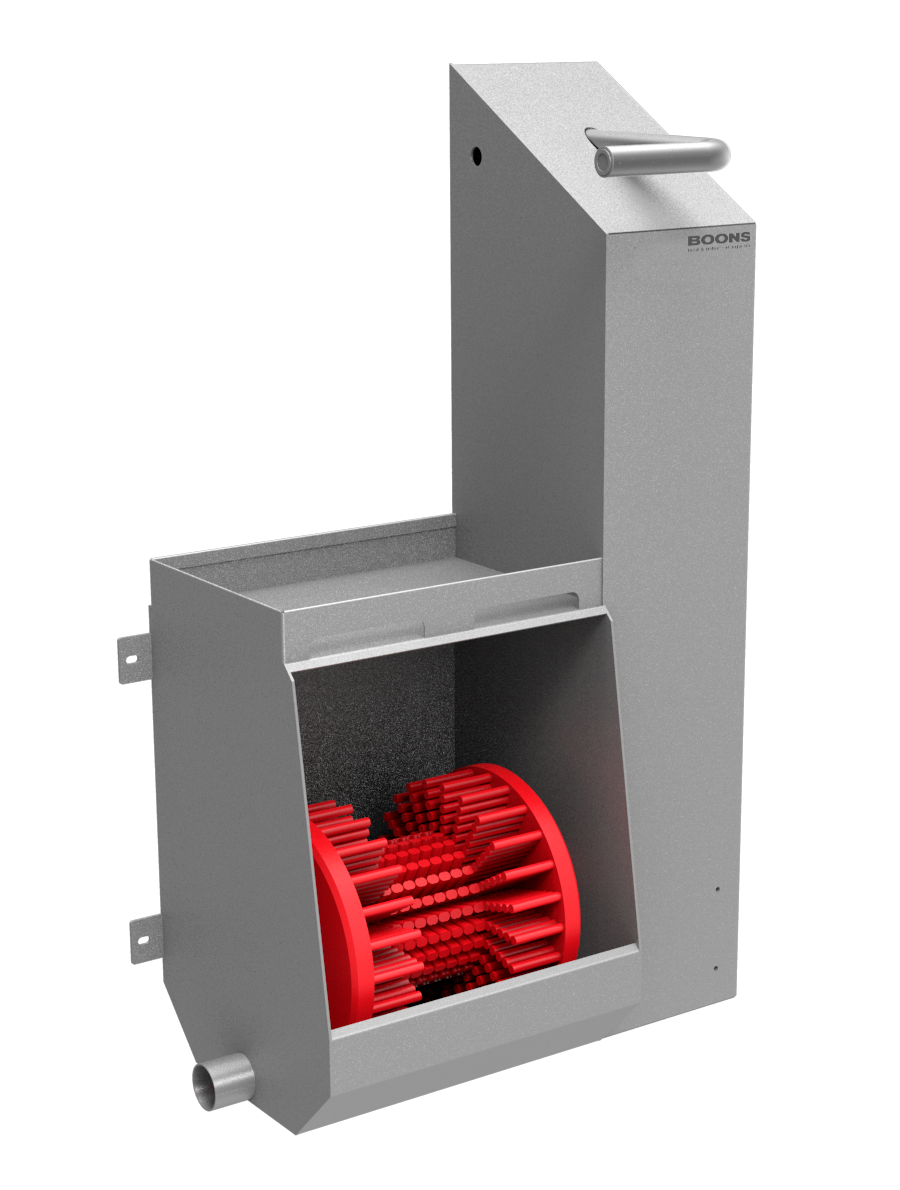Farmer wants a hygiene lock
- Monday 22 February 2021
- By: BOONS FIS
- Category: Hygiene equipment
A properly performing livestock farm devotes much attention to the health, welfare and care of its animals. Using the right products, investing in good feed and ensuring the best possible hygiene in the livestock enclosure create a climate in which the animals feel well and where it is a pleasure to work. Today we put the spotlight on our customer Bart Engels, an ambitious pig farmer who recently invested in a fully kitted out hygiene station.
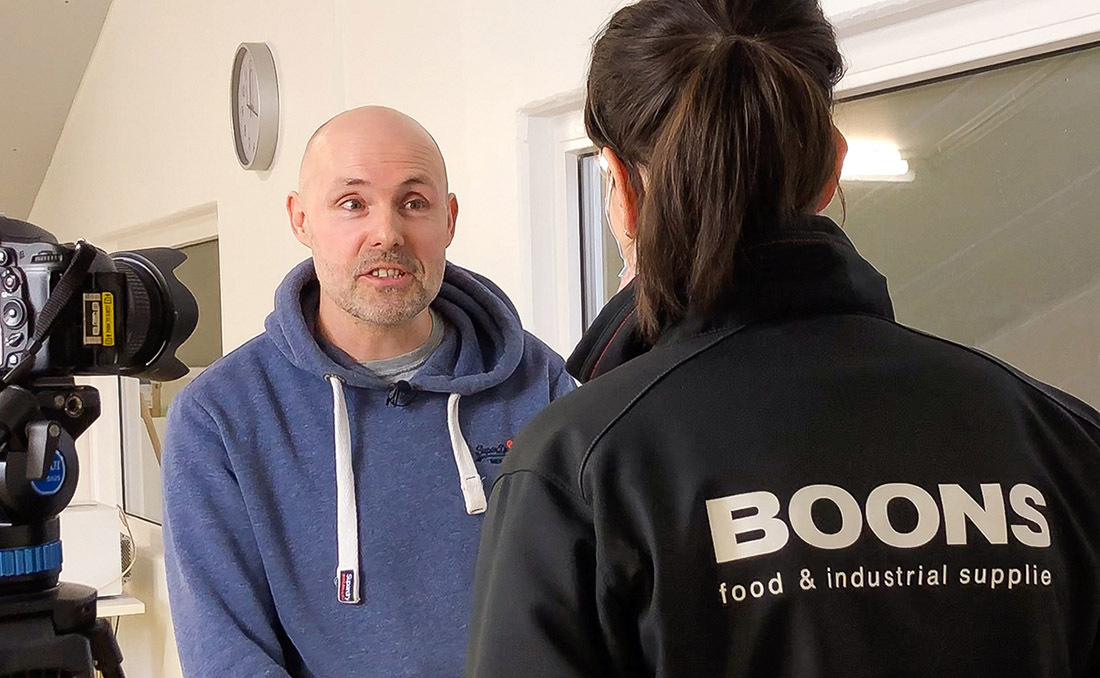
What can you tell us about the farm?
Bart Engels: "We do a little arable farming, but our focus is on keeping pigs. Besides our small fattening sty we have 1,000 sows. This means rearing piglets is by far our main activity. At the moment our farm is approved for the ‘beter leven’ (better life) label that you particularly find at Lidl and Albert Heijn."
Why does so much attention have to be paid to personal hygiene on a pig farm?
Bart Engels: "We want our animals to have a good life there, and good health is fundamental to this. “As long as we’ve got our health” people always say. And it’s no different for pigs.
Pigs can also catch influenza, become infected, and pandemics are also on the cards. Like we now have COVID-19 among people, African swine fever broke out among wild pigs several years ago. Pigs across the whole world were contaminated, both wild and tame. Wild pigs died in their masses. The tame pigs were slaughtered to prevent further contamination – we absolutely wanted to avoid that."

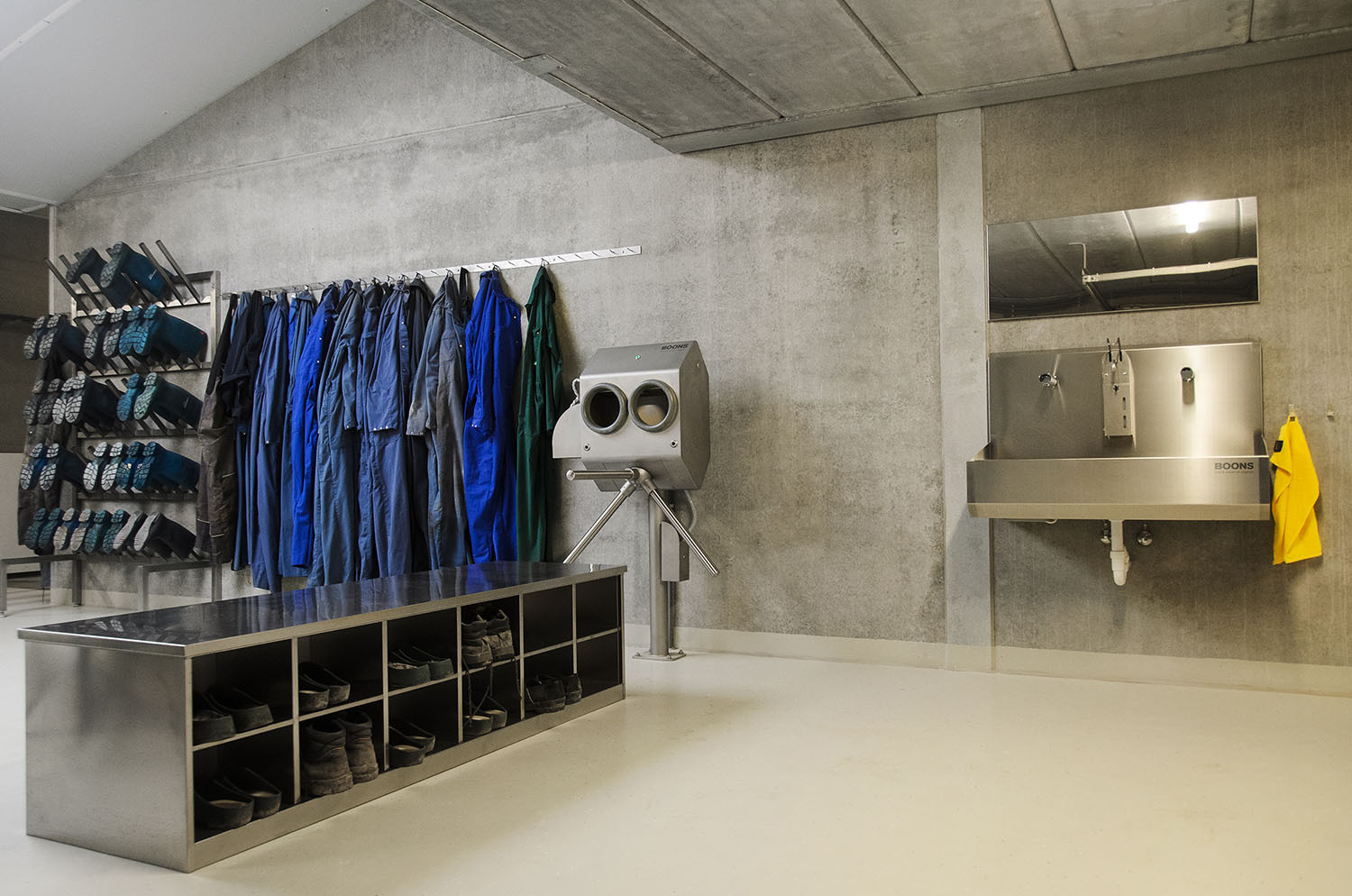
"Fortunately not all diseases are so serious and we have vaccines for many of them. But the animals can still become sick if disease levels are too high or if there is no vaccine.
We can often remedy bacterial infections using antibiotics but we do prefer not to use them. The more antibiotics we use the higher the risk that they will no longer be effective in the future, in people and animals alike.
Treatment also costs money, with a lot of time needed to nurse sick animals on top. However you look at it, we must make sure that our animals do not become sick."
"We all know that hygiene helps to combat the spread of diseases. True enough, human diseases are not pig diseases. But people can still carry pig diseases on their clothing. Pig farms are spread across the whole of Belgium and they are often located quite close to each other. Germs can stick to your clothing, shoes or skin without you even knowing. This can happen during a walk with your family in the countryside, for example. Professionals certainly carry germs – representatives, animal carers and veterinary surgeons arrive on different farms each day. We have invested in personal hygiene to prevent visitors, employees or advisers from bringing diseases in."
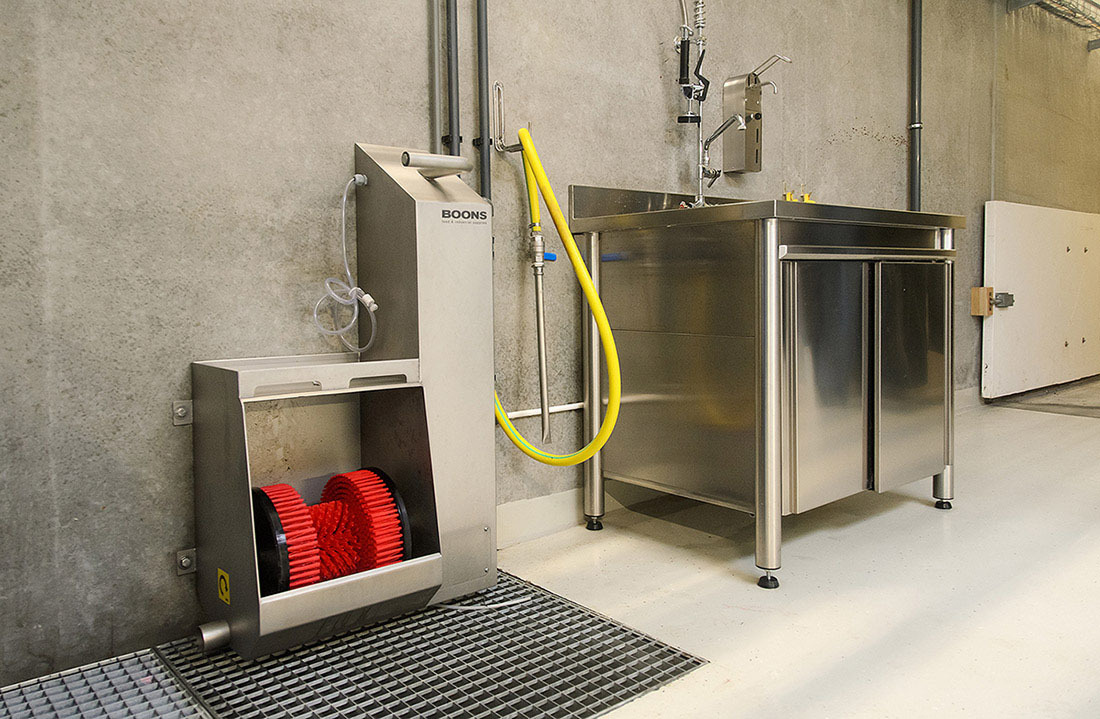
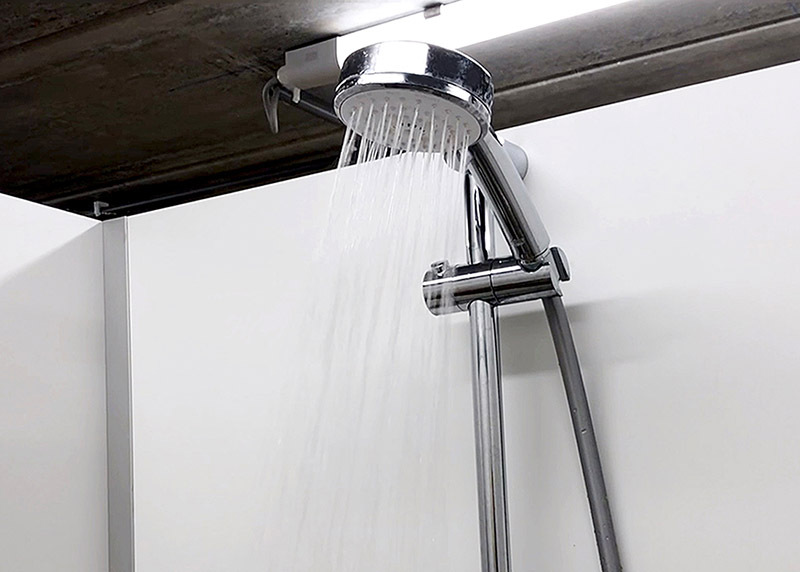
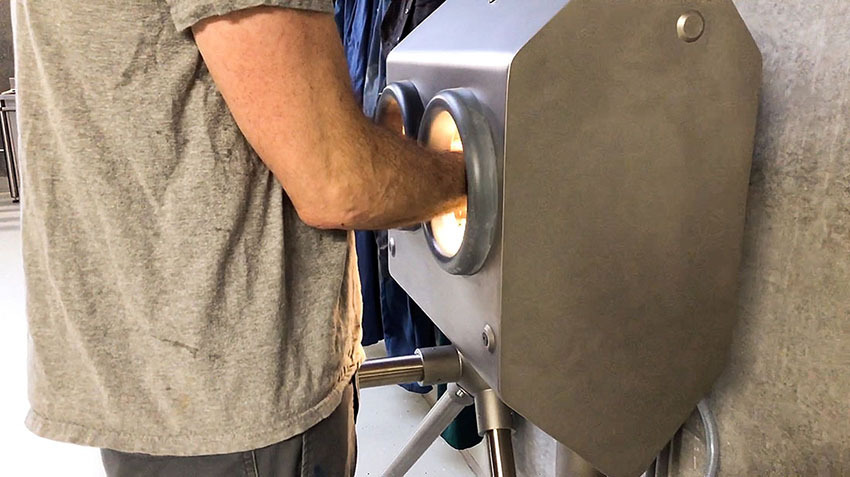
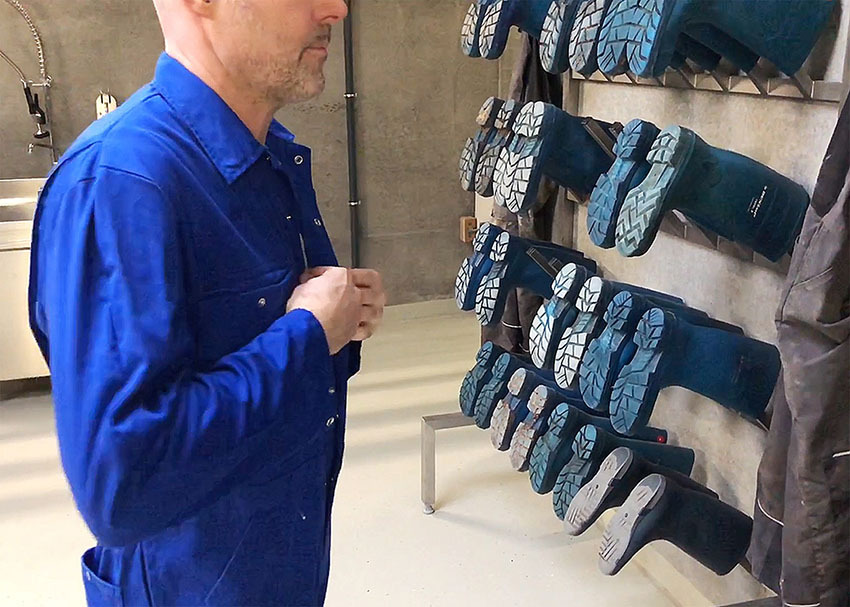
What stages must people go through to be allowed in the sty?
Bart Engels: "Shoes and coats must be immediately removed when coming in through the front door. We then pass through a walk-through shower consisting of three parts. The first part is to remove your own clothing and put it in a locker. In the second compartment you wash yourself completely in a shower with disinfecting soap. In the third part there are towels and clothing from the farm. These are washed in the sty itself. This means the material can bring nothing in from outside. When a properly washed person comes out of the shower with our clothing, the likelihood is extremely small that the person will still be carrying pathogens."
"After showering we ask people to wash and disinfect their hands. With the hand disinfection system (HDK) with turnstile from BOONS FIS you cannot enter the sty without disinfecting the hands. I see some people already thinking “we’ve only just come out of the shower?!”. But we also have a personnel kitchen and an office here. Employees sometimes go back there to eat, take a break or update software, for example. At such times they come into contact with items from outside, so washing and disinfecting the hands again is necessary."
"The next step is putting boots and overalls on. As you can see they are nicely hung up. This is tidily organised and encourages keeping everything clean. We keep the boots clean with a boot washer (SRS). Highly recommended! No one likes taking dirty boots off and hanging them up, let alone taking dirty boots off the rack and putting them on in the morning!
It is not only comfortable - washed boots also have many fewer pathogens on them. Hang them up tidily to dry out and many more germs sticking to the boots will die. In so doing we work on preventing diseases that are already in the sty from spreading between the pigs. Everything has been thought of!"
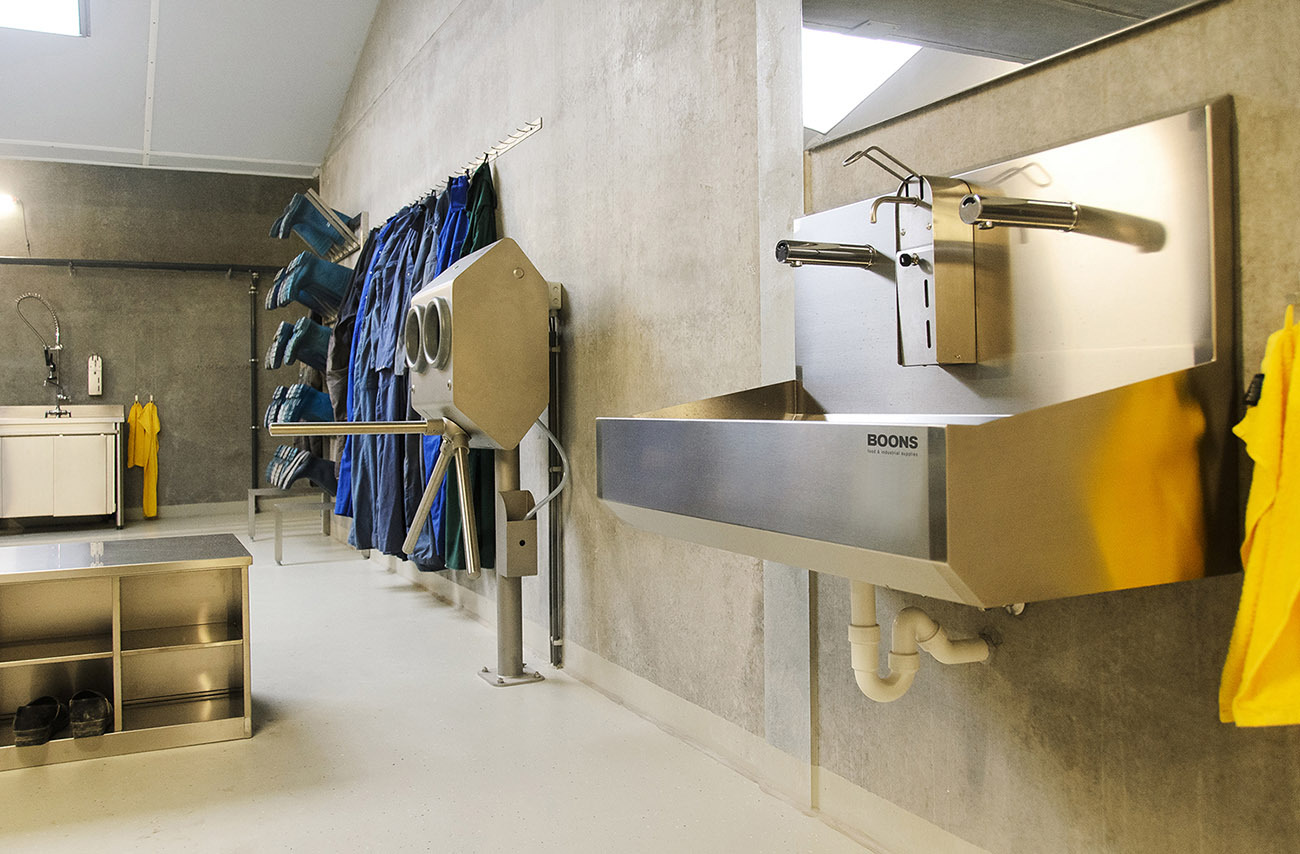
What was the cause of the deliberate and well-considered choice to not opt for amateur means but to invest in a fully fitted out hygiene station?
Bart Engels: "We all now know that a lot is needed to combat the spread of diseases, that couldn’t be a hotter topic at the moment. Just washing your hands and changing overalls and boots when you enter the sty is just not enough. People are indeed only human: how often do you walk back into your home with dirty shoes to grab the keys you forgot? Everyone does it! It’s just the same with a sty. When you are busy at work, hygiene is the first thing to slip your mind. That’s why we opt for a simple and compulsory system; you cannot enter this sty without having gone through all the hygiene measures."
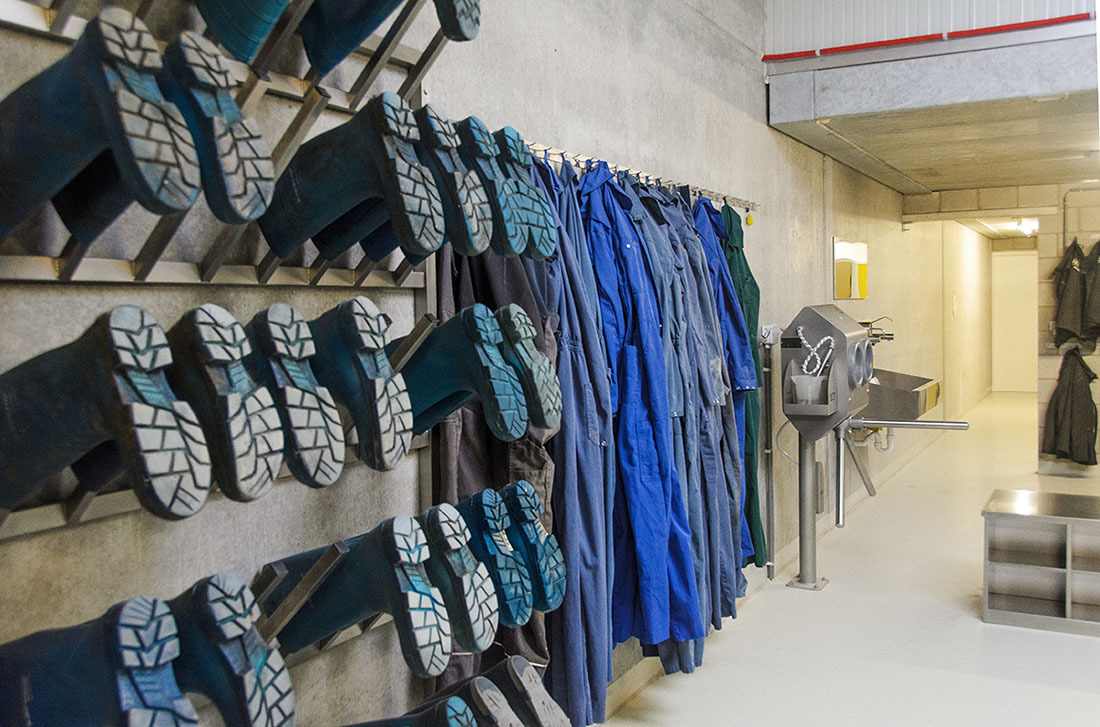
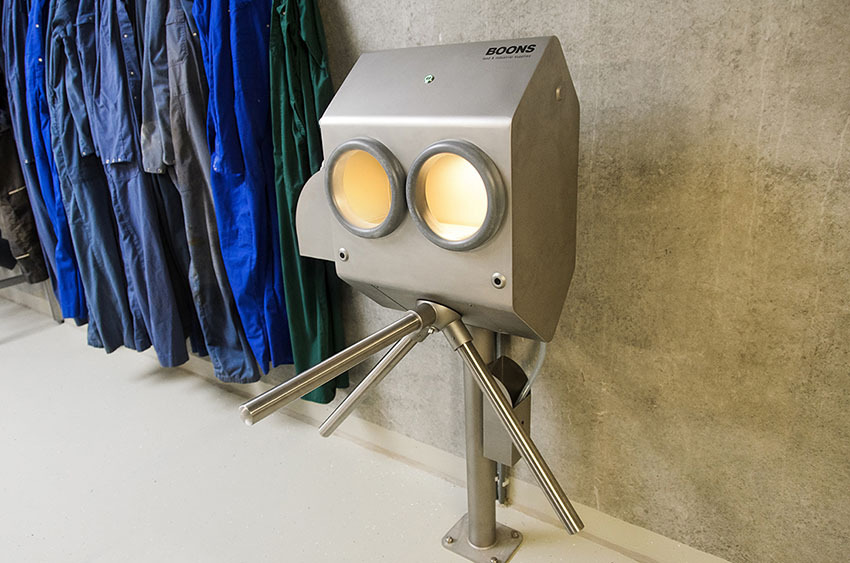
"The hand disinfection system with turnstile is mandatory - you cannot get into the sty without disinfecting the hands. And that is a must, as there is a kitchen and office in this ‘pig-free’ part. Employees go there a few times a day for administration or to eat. At these times they come into contact with objects from outside that may be contaminated. It is again just human to forget this and quickly get back to work. But in this case that’s not possible without disinfecting the hands. It is the small things that make the difference and that make this investment worth the trouble!"
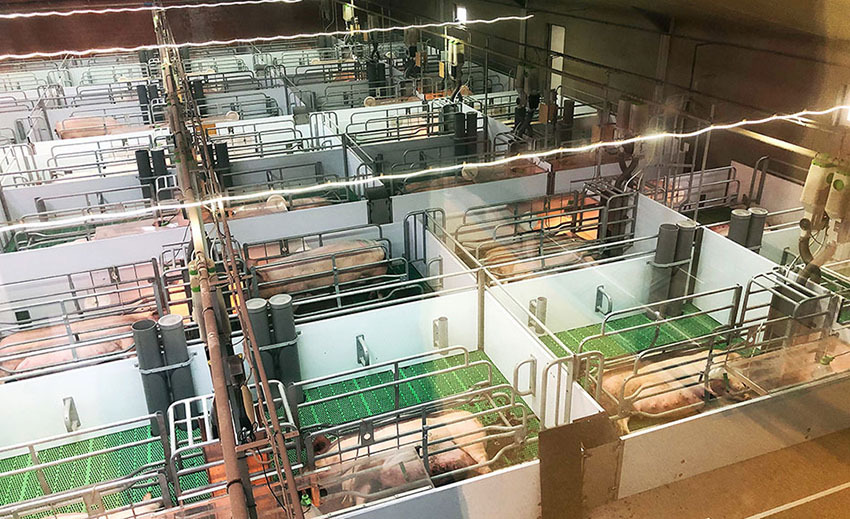
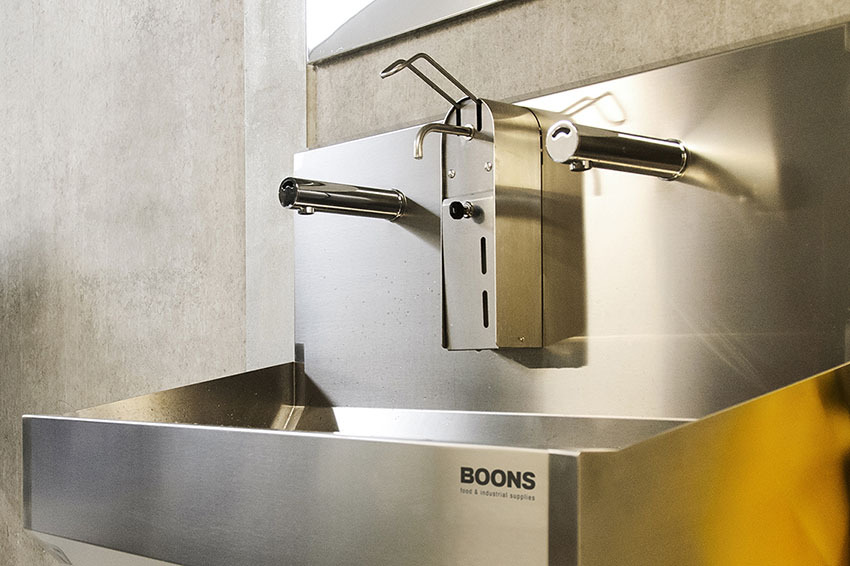
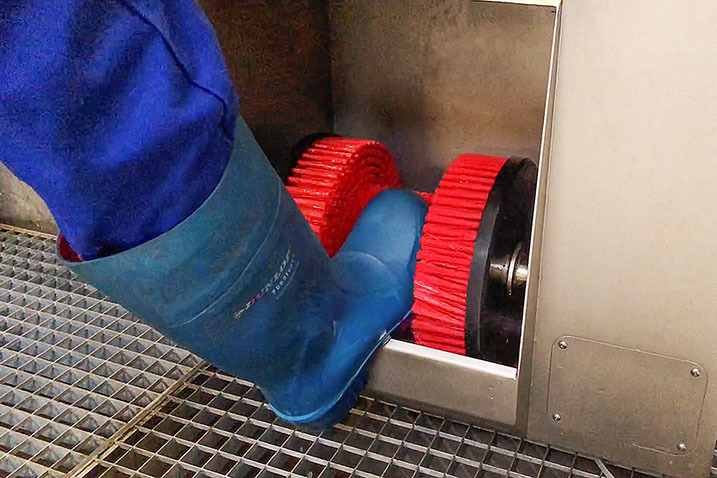
Products in this message
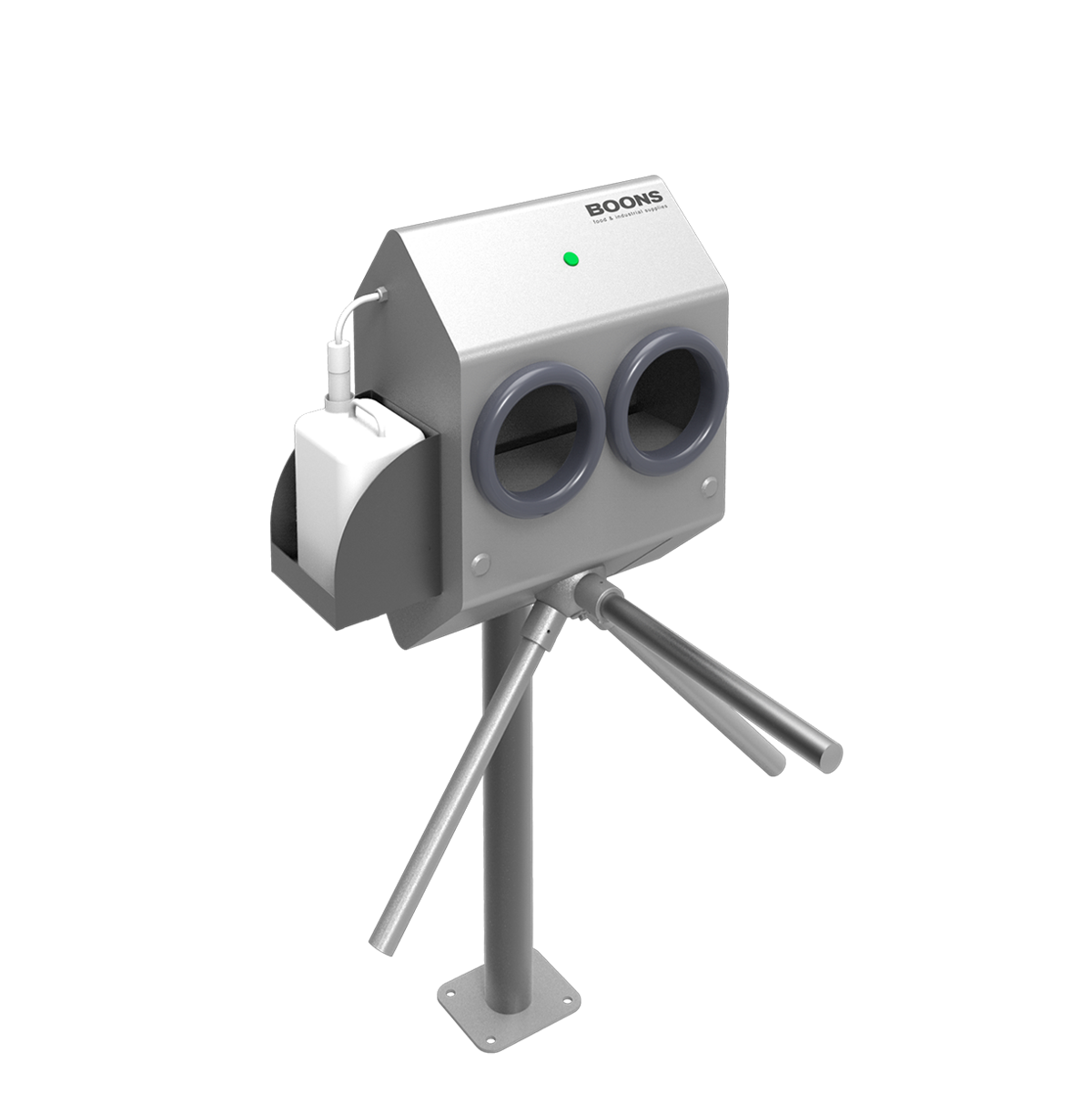
Hand chemical turnstile HDK
The HDK is an automatic dispenser that sprays the disinfectant or soap product on the hands...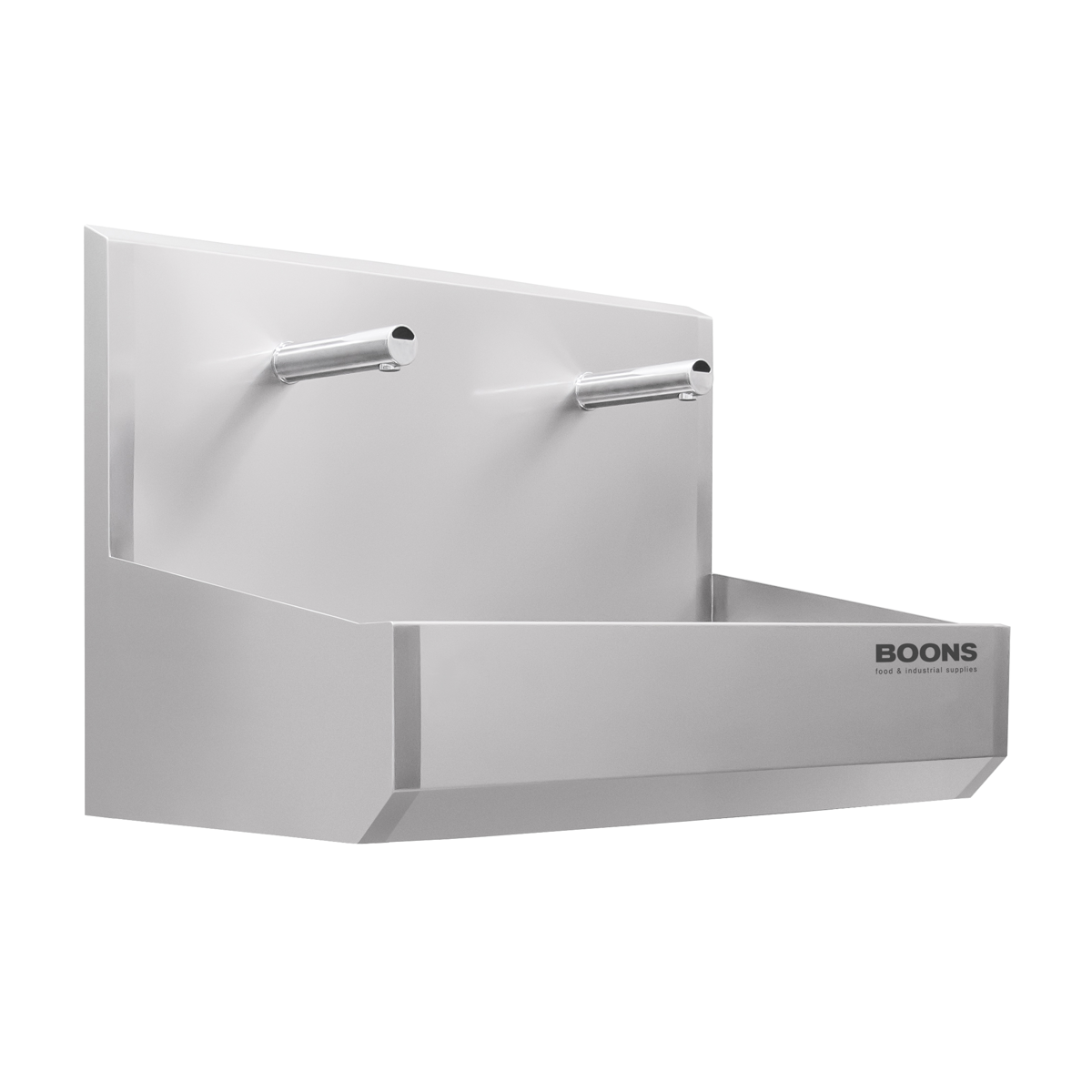
Hand‑washing sinks
The WR hand-washing sink is a multi-part washbasin for wall mounting, made entirely of...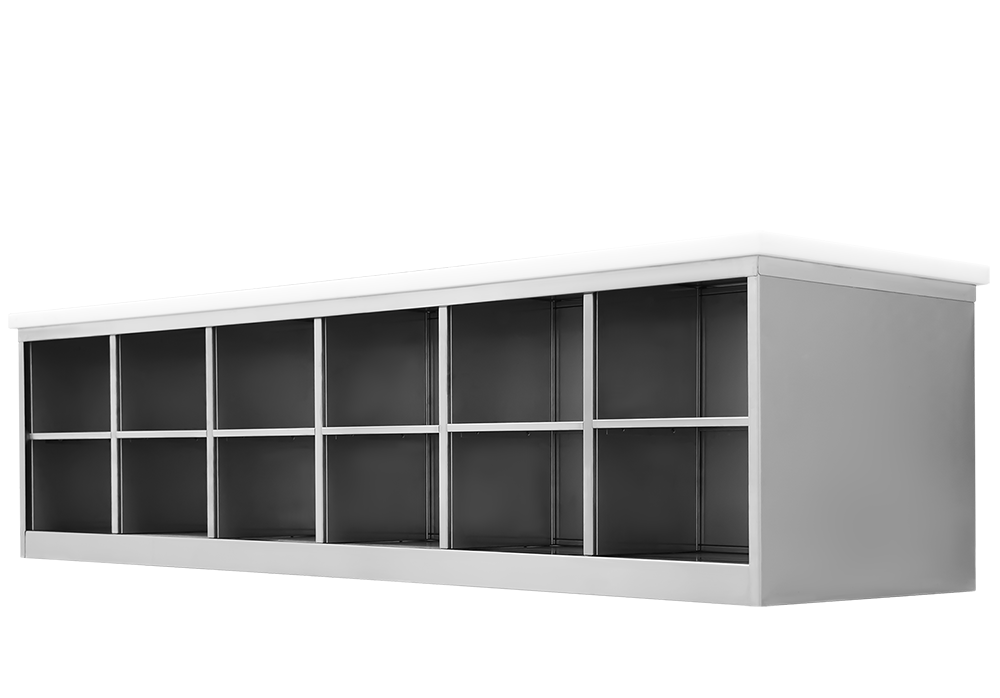
Benches
Stainless steel benches are an indispensable part of a properly furnished changing room where...